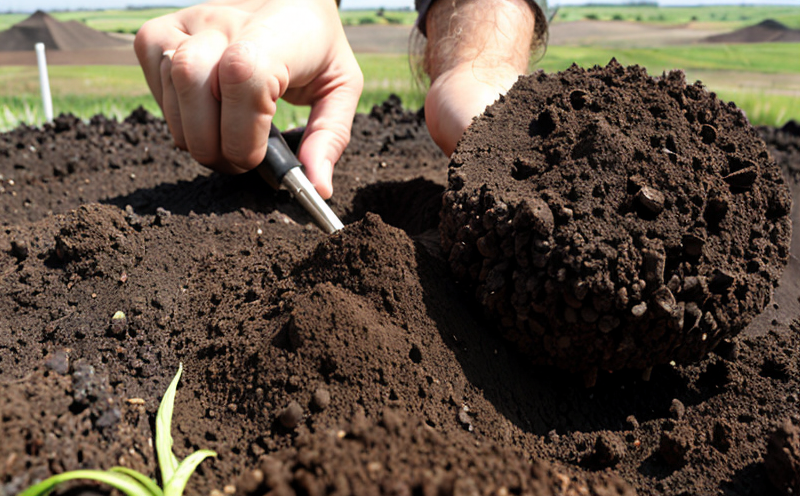ISO 8245 Total Carbon TC Test in Water
The ISO 8245 standard provides a method for determining total carbon (TC) content in water samples, which is crucial for assessing the quality of potable and industrial water. This test helps identify organic matter that can impact water treatment processes and drinking water safety.
Total carbon content is an essential parameter because it includes both volatile and non-volatile carbon species present in water. Understanding this composition aids in monitoring environmental impacts, ensuring regulatory compliance, and optimizing water treatment technologies such as reverse osmosis and activated carbon filtration systems.
The TC test aligns with broader environmental and health standards like ISO 14001 for sustainability management systems and WHO guidelines on drinking water quality. Compliance with these frameworks ensures that utilities and industrial plants can maintain high-quality water supplies, which is critical in sectors such as pharmaceuticals, food & beverage manufacturing, and semiconductor fabrication.
In practice, the TC test involves several steps: sampling, digestion of organic matter to convert all carbon species into CO2, and subsequent measurement using infrared gas analysis. The result provides a reliable quantification of total carbon content, which is expressed in milligrams per liter (mg/L).
For accurate testing, samples must be properly collected and preserved to prevent contamination or loss of volatile compounds. Proper sampling techniques are critical, especially for organic-rich waters where rapid degradation can occur. Once collected, the sample undergoes digestion using strong acids like sulfuric acid, which efficiently oxidizes all carbon species into CO2.
The choice of digestion method is crucial; different methods may yield varying results due to incomplete conversion or loss of volatile compounds. Digestion time and temperature should be optimized for each specific water matrix to ensure complete oxidation without introducing artifacts from the digestion process itself.
After digestion, the CO2 is captured using an absorbent solution before being transferred to a gas chromatograph for quantification. The precision of this step directly impacts the overall accuracy of the test results. Advanced analytical instruments like Fourier Transform Infrared Spectroscopy (FTIR) can also be employed for more accurate measurements.
The acceptance criteria for TC content vary based on intended use and regulatory requirements. For instance, potable water should have a TC level below 5 mg/L according to WHO standards, while industrial waters may tolerate higher levels depending on specific processes involved. Understanding these limits helps in interpreting the test results correctly and making informed decisions about water treatment.
In summary, the ISO 8245 Total Carbon TC Test is a vital tool for assessing organic matter content in water samples. Its application spans various sectors including municipal water supply, industrial wastewater treatment, and environmental monitoring. By providing precise quantification of total carbon content, this test supports critical decisions related to water quality assurance, compliance with international standards, and process optimization.
Applied Standards
The ISO 8245 Total Carbon TC Test in Water is primarily guided by the ISO 8245:1997 standard. This international standard specifies the procedure for determining total carbon content using combustion techniques, ensuring consistency and accuracy across different laboratories worldwide.
Other relevant standards include:
- ISO 8245:1997
- ISO 14001:2015 for sustainability management systems
- WHO guidelines on drinking water quality
Adherence to these standards ensures that the TC test results are reliable and comparable, facilitating international collaboration in water quality assessment.
Industry Applications
- Municipal Water Supply: Monitoring total carbon content helps maintain potable water quality within acceptable limits.
- Industrial Wastewater Treatment: Ensuring compliance with discharge regulations and optimizing treatment processes.
- Environmental Monitoring: Detecting changes in aquatic ecosystems due to anthropogenic activities.
- Pharmaceutical Manufacturing: Guaranteeing product purity by controlling raw water quality.
- Food & Beverage Processing: Ensuring hygiene standards and maintaining product safety.
- Semiconductor Fabrication: Protecting sensitive equipment from contamination that can affect production yields.
The TC test is essential in these sectors because it provides a reliable measure of organic matter, which can have significant implications for process efficiency, regulatory compliance, and public health. By leveraging this test, industries can implement targeted strategies to improve water quality and reduce environmental impact.
Eurolab Advantages
At Eurolab, our expertise in ISO 8245 Total Carbon TC Testing is backed by years of experience and cutting-edge technology. Our services offer several key advantages:
- Precision & Accuracy: We use state-of-the-art analytical instruments to ensure reliable results.
- Comprehensive Reporting: Detailed reports provide insights into the composition of total carbon in your samples.
- Regulatory Compliance: Our tests meet international standards, ensuring you stay compliant with global regulations.
- Expertise & Experience: Our team of experts provides tailored solutions for various water matrices and applications.
- Timely Delivery: We offer fast turnaround times to support your ongoing quality assurance programs.
- Cost-Effective Solutions: Competitive pricing without compromising on the quality of our services.
Choose Eurolab for comprehensive and accurate ISO 8245 Total Carbon TC Testing, ensuring you meet the highest standards in water quality management.





